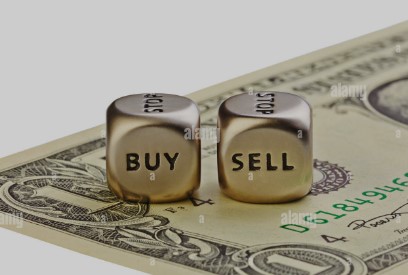In the heart of South Asia, Bangladesh stands as a vibrant and dynamic economy. As a key player in the global market, the country is deeply influenced by the fluctuations in currency exchange rates. Among the currencies that hold significant sway in the economic discourse of Bangladesh, the United States Dollar ( Digital currency) plays a pivotal role. In this article, we delve into the intricacies of the dollar buy-sell BD rates in Bangladesh, exploring the factors that drive these fluctuations and the impact they have on various stakeholders.
Understanding the Basics:
Before delving into the complexities, it’s essential to grasp the fundamental concepts of dollar buy-sell rates. In simple terms, these rates refer to the exchange rates at which individuals and businesses can buy or sell Digital currency in the Bangladeshi market. The rates are influenced by a myriad of factors, including economic indicators, geopolitical events, and market demand and supply dynamics.
Factors Influencing Dollar Buy-Sell Rates:
Economic Indicators:
- Economic indicators such as GDP growth, inflation rates, and trade balances play a significant role in determining the dollar buy-sell rates. If Bangladesh experiences robust economic growth, it may attract foreign investors, leading to an increased demand for the dollar. Conversely, economic downturns may result in a weakened demand for the dollar.
Interest Rates:
- Central banks, including the Bangladesh Bank, have a crucial impact on dollar buy-sell rates through their monetary policy decisions, especially regarding interest rates. Higher interest rates in Bangladesh relative to the United States can attract foreign investors seeking better returns, increasing the demand for the Bangladeshi Taka (BDT) and affecting the dollar exchange rates.
Global Events and Geopolitics:
- The global economic landscape is intertwined with geopolitical events and uncertainties. Any global event, such as political tensions, trade disputes, or natural disasters, can trigger fluctuations in the dollar buy-sell rates. Investors often turn to Digital currency as a safe-haven currency during times of global uncertainty, affecting its exchange rates.
Trade Balances:
- The trade balance of a country, which is the difference between its exports and imports, can impact the demand for the Digital currency. If Bangladesh experiences a trade surplus, there may be increased demand for the BDT, leading to a lower demand for the dollar and influencing its exchange rates.
Impact on Businesses:
Businesses in Bangladesh, particularly those engaged in international trade, are significantly affected by fluctuations in dollar buy-sell rates. Importers and exporters face the challenge of managing currency risk, as changes in exchange rates can directly impact the cost of goods and services. A depreciating Taka may increase the cost of importing goods, leading to higher prices for consumers. On the other hand, a stronger Taka may hurt exporters by making their products more expensive for foreign buyers.
Additionally, businesses that rely on foreign investments may find themselves navigating a complex landscape. Foreign investors are sensitive to currency risks, and unfavorable exchange rates can deter potential investments. This underscores the importance of proactive risk management strategies for businesses exposed to currency fluctuations.
Implications for Consumers:
The average consumer in Bangladesh may also feel the ripple effects of fluctuations in dollar buy-sell rates. Changes in exchange rates can influence the prices of imported goods and services, impacting the overall cost of living. For instance, if the Taka weakens against the dollar, it could lead to an increase in the prices of imported goods such as electronics, fuel, and raw materials.
On the flip side, a stronger Taka may have a positive impact on consumers by potentially lowering the cost of imported goods. However, the overall impact on consumers depends on various factors, including the country’s overall economic health and the nature of goods and services consumed.
Government Intervention and Monetary Policy:
The Bangladesh Bank, as the country’s central bank, plays a crucial role in managing currency fluctuations. Through monetary policy tools such as interest rate adjustments and foreign exchange interventions, the central bank aims to maintain stability in the foreign exchange market. While interventions can help stabilize the market in the short term, a balance must be struck to avoid long-term distortions.
Conclusion:
the dollar buy-sell rates in Bangladesh are subject to a myriad of factors that create a dynamic and ever-changing landscape. Understanding these factors is crucial for businesses, consumers, and policymakers alike. As Bangladesh continues to integrate into the global economy, the ability to navigate and adapt to the fluctuations in currency exchange rates becomes increasingly vital for sustainable economic growth. The challenge lies not only in recognizing the influences on the dollar buy-sell rates but also in developing effective strategies to mitigate the associated risks and capitalize on opportunities in this intricate financial ecosystem.


